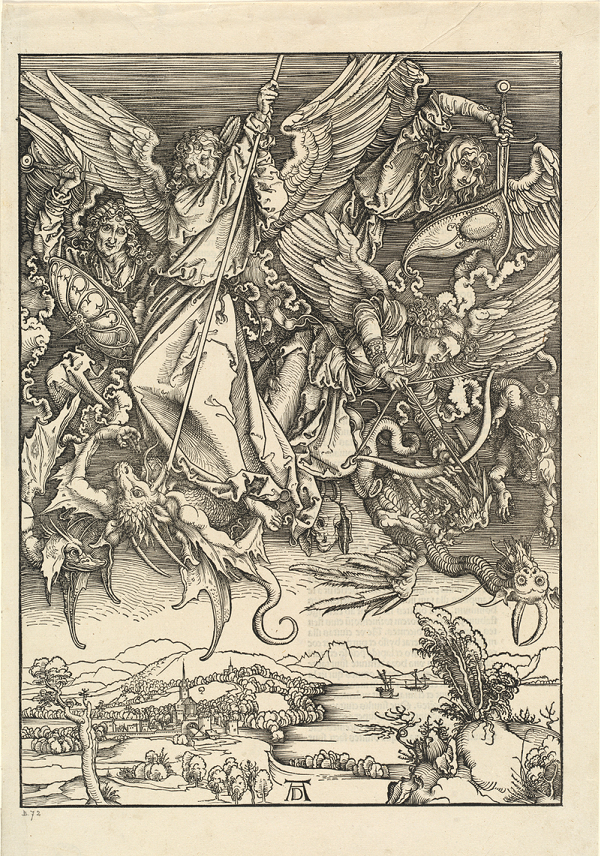On the horrors of apocalyptic warfare, 1: its sheer intensity
[ by Charles Cameron — first in a series of four posts on the central theme of a proposed book ]
.
In a previous post, I introduced my work on a book proposal concerning Coronation: The Magic and Romance of Monarchy. The second book proposal I’ve put together, which is also currently in the hands of an agent and making the publishing rounds, is titled Jihad and the Passion of ISIS: Making Sense of Religious Violence.
**
We now have, I believe, a strong undertanding of the Islamic State and its origins in such books as Stern & Berger, ISIS: The State of Terror, Jason Burke, The New Threat, Joby Warrick, Black Flags: The Rise of ISIS, and Weiss & Hassan, ISIS: Inside the Army of Terror. Delving directly into the key issue that interests me personally, the eschatology of the Islamic State, we have Will McCants‘ definitive The ISIS Apocalypse. My own contribution will hopefully supplement these riches, and McCants’ book in particular, with a comparative overview of religious violence across continents and centuries, and a particular focus on the passions engendered in both religious and secular movements when the definitive transformation of the world seems close at hand.
What follows is the first section of a four-part exploration of the horrors of apocalyptic war.
**
I’ve attempted to give a sense of those passions in my post So: how does it feel at World’s End? — invoking Sylvia Plath‘s extraordinary couplet:
By the roots of my hair some god got hold of me.
I sizzled in his blue volts like a desert prophet.
That’s the intensity of the feeling aroused, I’d suggest, in the throngs who followed Muhammad Ahmad al-Mahdi to Khartoum, and Winston Churchill in his book The River War, conveys the intensity of their jihad in these words:
the force of fanatical passion is far greater than that exerted by any philosophical belief, its function is just the same. It gives men something which they think is sublime to fight for..
Churchill is really pretty astounding on the topic of the Mahdi — a messianic figure in a religion he characterized as laying dreadful curses on its votaries inclouding “the fanatical frenzy, which is as dangerous in a man as hydrophobia in a dog”, and a warrior of whom he said that a future Arab historian should place him “foremost among the heroes of his race”.
Here is another Churchillian description of that “fanatical frenzy”:
Then came the Mahdi .. it should not be forgotten that he put life and soul into the hearts of his countrymen and freed his native land of foreigners. The poor miserable natives, eating only a handful of grain, toiling half-naked and without hope, found a new, if terrible magnificence added to life. Within their humble breasts the spirit of the Mahdi roused the fires of patriotism and religion. Life became filled with thrilling, exhilarating terrors. They existed in a new and wonderful world of imagination. While they lived there were great things to be done; and when they died, whether it were slaying the Egyptians or charging the British squares, a Paradise which they could understand awaited them.
**
Let me make the general point more explicit. Dr Tim Furnish, a frequent commentator on these pages and author of Holiest Wars: Islamic Mahdis, Their Jihads, and Osama bin Laden, opens his book as I have cited frequently with this analogy:
Islamic messianic insurrections are qualitatively different from mere fundamentalist ones such as bedevil the world today, despite their surface similarities. In fact, Muslim messianic movements are to fundamentalist uprisings what nuclear weapons are to conventional ones: triggered by the same detonating agents, but far more powerful in scope and effect.
Will McCants makes it very clear in his The ISIS Apocalypse that the Islamic State as we currently encounter it is a caliphal movement rather than a Mahdist one, in other words that it is in an earlier stage of the same process leading eventually to the Mahdi’s arrival — although its propaganda, quoting its “founding father” Abu Musab al-Zarqawi, is clearly apocalyptic…
**
Up next: On the horrors of apocalyptic warfare, 2: to spark a messianic fire



